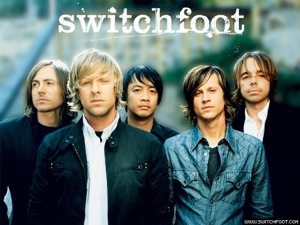Only three things are guaranteed in life: death, taxes, and tough times. Nothing else is certain in our life time. Anything that lives will die, anything that has the ability to reason will pay taxes, and every human person will experience trials and tribulations. Life is a roller-coaster. As humans we go through cycles, and it’s easy to get discouraged.
We all have our ups and downs. We all have our happy moments and our hurting moments. But why is this? Why is happiness such a fleeting moment; why is it just that—a flickering light?
I’ve come to ask myself this question many times over. I see people getting happy because they won the lottery, because that girl they asked out said yes, because the bank approved the mortgage for that house, because the wife is pregnant with their first kid. They’re excited. Almost bursting at the seams. They can’t contain themselves. Their smile stretches from ear to ear. They are happy.
But you see, the word happy and the word happen come from the same root hap, which means “an occurrence, happening, or accident”. It’s no wonder a known synonym for hap is happenstance which is nothing more than the word happen+( circum )stance.
So happiness is circumstance-driven. You only become happy when something happens to you. Happiness is only caused by an external factor. Your emotions swing to and fro manipulated by the circumstances that happen to you. Circumstances have unashamedly made a slave of you.
That’s why some people commit suicide when they lose all the lottery money they had won, get depressed when that girl they asked out dumps them, feel their world crumbling down when the house they bought is now on foreclosure, or feel hopeless because the pregnant wife just lost the baby. They were originally ecstatic and happy but now they feel paralyzed and beaten by these new developments that obviously have affected their lives.
I don’t mean to diminish their hurt. Things that are outside of our control do happen. Their hurt is real. Your hurt is real. My hurt is real.
So how does our faith play into helping us during these tough times?
Well, let’s consider now the word joy. Joyfulness means just that: joy+fulness, namely, being full of joy. Joyfulness it’s a state, it’s not based on circumstances. Joy cannot be swayed by external factors. It’s possible to be sad and crying and still be joyful inside.
But where does that joy come from? What is the source of this state of being? What fills our hearts with hope and joy in the midst of suffering, crumbling relationships, death in the family, having no shelter nor clothes nor food or being unjustly incarcerated?
Remember we were talking about ups and downs? Well, the joy comes from remembering during our ups that our God is the God of the mountain tops and, during our downs, remembering that our God is the God of the valleys.
Everybody feels good when in their ups. We feel invincible, ecstatic, and larger-than-life. But during our downs the only thing we have left is to say, “Lord, help me”.
And that’s how our faith helps us during our tough times. God, the creator of the universe, always hears the prayers of those who love Him, and because He loves us unconditionally, there’s no need to masquerade before the throne of God. There are no “ifs” and “buts” with Him, there’s only unconditional one-way love.
In this conditional world where we are easily rejected for our weaknesses and failures, or are accepted only if you’re rich, beautiful, skinny, or have the right friends, we can rest in the fact that we’re accepted by Him when we’re unacceptable, and forever loved when we are unlovable.


